The Booker Prize, formerly the Booker Prize for Fiction (1969–2001) and the Man Booker Prize (2002–2019), is a literary award conferred each year for the best novel written in the English language, which was published in the United Kingdom and Ireland. The winner of the Booker Prize receives international publicity that usually leads to a sales boost. When the prize was created, only novels written by Commonwealth, Irish, and South African citizens were eligible to receive the prize; in 2014, eligibility was widened to any English-language novel—a change that proved controversial.
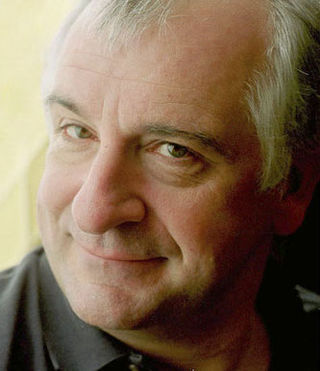
Douglas Noël Adams was an English author, humorist, and screenwriter, best known for The Hitchhiker's Guide to the Galaxy. Originally a 1978 BBC radio comedy, The Hitchhiker's Guide to the Galaxy developed into a "trilogy" of five books that sold more than 15 million copies in his lifetime. It was further developed into a television series, several stage plays, comics, a video game, and a 2005 feature film. Adams's contribution to UK radio is commemorated in The Radio Academy's Hall of Fame.
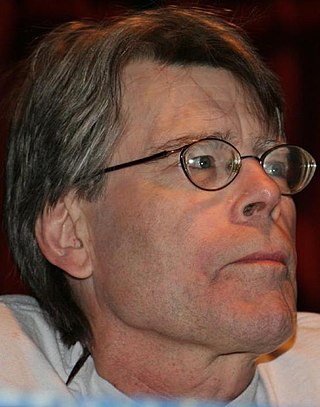
Stephen Edwin King is an American author of horror, supernatural fiction, suspense, crime, science-fiction, and fantasy novels. Called the "King of Horror", his books have sold more than 350 million copies as of 2006, and many have been adapted into films, television series, miniseries, and comic books. He has also written approximately 200 short stories, most of which have been published in book collections. His debut, Carrie, was published in 1974, and was followed by 'Salem's Lot, The Shining, The Stand and The Dead Zone. Different Seasons, a collection of four novellas, was his first major departure from the horror genre. The novellas provided the basis for the films Stand by Me and The Shawshank Redemption. King has published under the pseudonym Richard Bachman and has cowritten works with other authors, notably his friend Peter Straub and sons Joe Hill and Owen King.
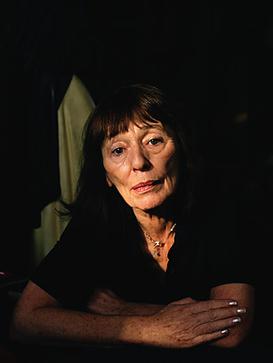
Dame Beryl Margaret Bainbridge was an English writer. She was primarily known for her works of psychological fiction, often macabre tales set among the English working class. She won the Whitbread Awards prize for best novel in 1977 and 1996, and was nominated five times for the Booker Prize. She was described in 2007 as a national treasure. In 2008, The Times named Bainbridge on their list of the "50 greatest British writers since 1945".
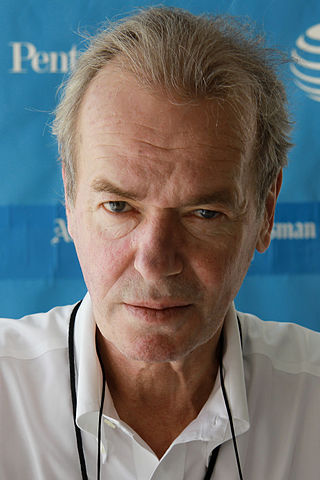
Sir Martin Louis Amis was an English novelist, essayist, memoirist, and screenwriter. He is best known for his novels Money (1984) and London Fields (1989). He received the James Tait Black Memorial Prize for his memoir Experience and was twice listed for the Booker Prize. Amis served as Professor of Creative Writing at the University of Manchester's Centre for New Writing from 2007 until 2011. In 2008, The Times named him one of the fifty greatest British writers since 1945.
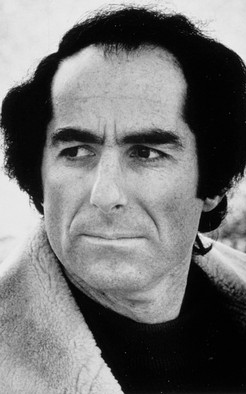
Philip Milton Roth was an American novelist and short story writer. Roth's fiction—often set in his birthplace of Newark, New Jersey—is known for its intensely autobiographical character, for philosophically and formally blurring the distinction between reality and fiction, for its "sensual, ingenious style" and for its provocative explorations of American identity. He first gained attention with the 1959 short story collection Goodbye, Columbus, which won the U.S. National Book Award for Fiction. Ten years later, he published the bestseller Portnoy's Complaint. Nathan Zuckerman, Roth's literary alter ego, narrates several of his books. A fictionalized Philip Roth narrates some of his others, such as the alternate history The Plot Against America.

Jasper Fforde is an English novelist, whose first novel, The Eyre Affair, was published in 2001. He is known mainly for his Thursday Next novels, but has published two books in the loosely connected Nursery Crime series and the first books of two other independent series: The Last Dragonslayer and Shades of Grey. Fforde's books abound in literary allusions and wordplay, tightly scripted plots and playfulness with the conventional, traditional genres. They usually contain elements of metafiction, parody, and fantasy.
Guardian usually refers to:

Graham Colin Swift FRSL is an English writer. Born in London, England, he was educated at Dulwich College, London, Queens' College, Cambridge, and later the University of York.

Michael John Dobbs, Baron Dobbs is a British Conservative politician and author, best known for his House of Cards trilogy.
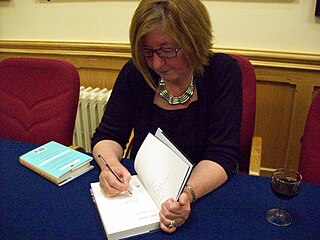
Patricia Mary W. Barker, is a British writer and novelist. She has won many awards for her fiction, which centres on themes of memory, trauma, survival and recovery. Her work is described as direct, blunt and plainspoken. In 2012, The Observer named the Regeneration Trilogy as one of "The 10 best historical novels".

David Stephen Mitchell is an English novelist, television writer, and screenwriter.
Twilight of the Gods may refer to:

Olivia Haigh Williams is a British actress who has appeared in British and American films and television. Williams studied drama at the Bristol Old Vic Theatre School for two years followed by three years at the Royal Shakespeare Company. Her first significant screen role was as Jane Fairfax in the British television film Emma (1996), based on Jane Austen's novel.
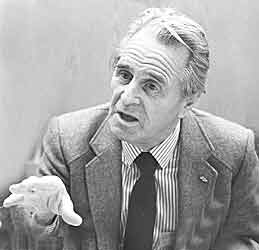
Harold Edward James Aldridge was an Australian-British writer and journalist. His World War II despatches were published worldwide and he was the author of over 30 books, both fiction and non-fiction works, including war and adventure novels and books for children.

David Alan Nicholls is a British novelist and screenwriter.
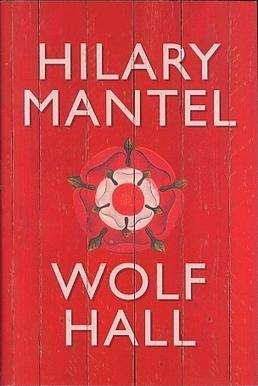
Wolf Hall is a 2009 historical novel by English author Hilary Mantel, published by Fourth Estate, named after the Seymour family's seat of Wolfhall, or Wulfhall, in Wiltshire. Set in the period from 1500 to 1535, Wolf Hall is a sympathetic fictionalised biography documenting the rapid rise to power of Thomas Cromwell in the court of Henry VIII through to the death of Sir Thomas More. The novel won both the Booker Prize and the National Book Critics Circle Award. In 2012, The Observer named it as one of "The 10 best historical novels".
Dark Guardian may refer to:
Lucy Katherine Mangan is a British journalist and author. She is a columnist, features writer and TV critic for The Guardian and an opinion writer for i news. A major part of her writing is related to feminism.












